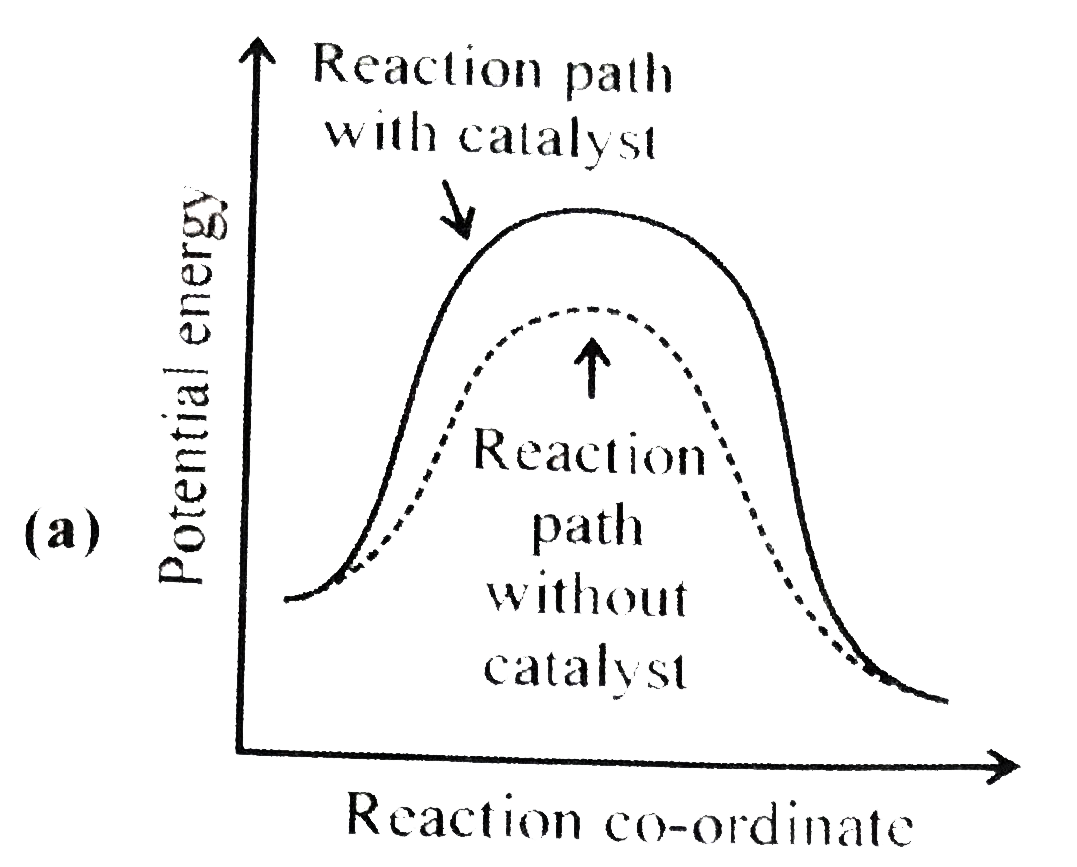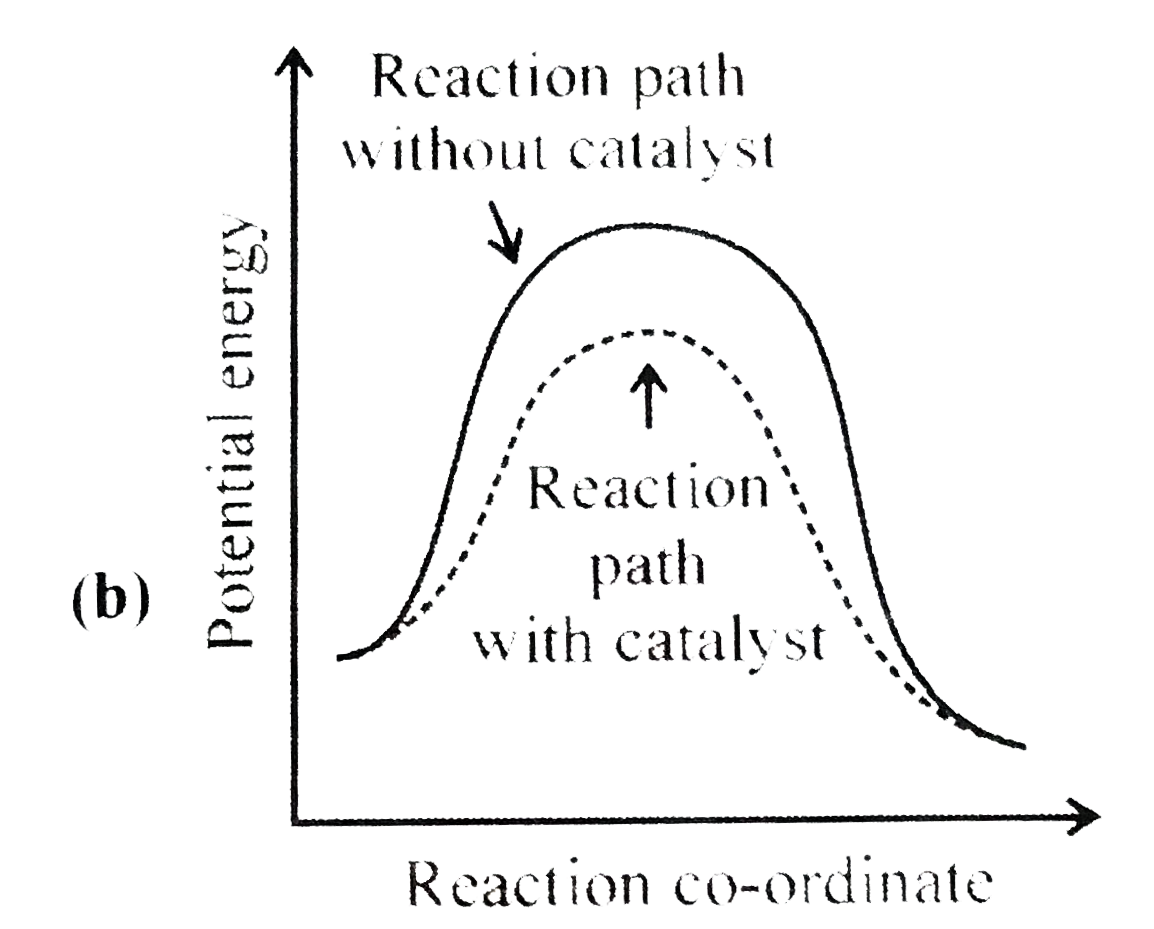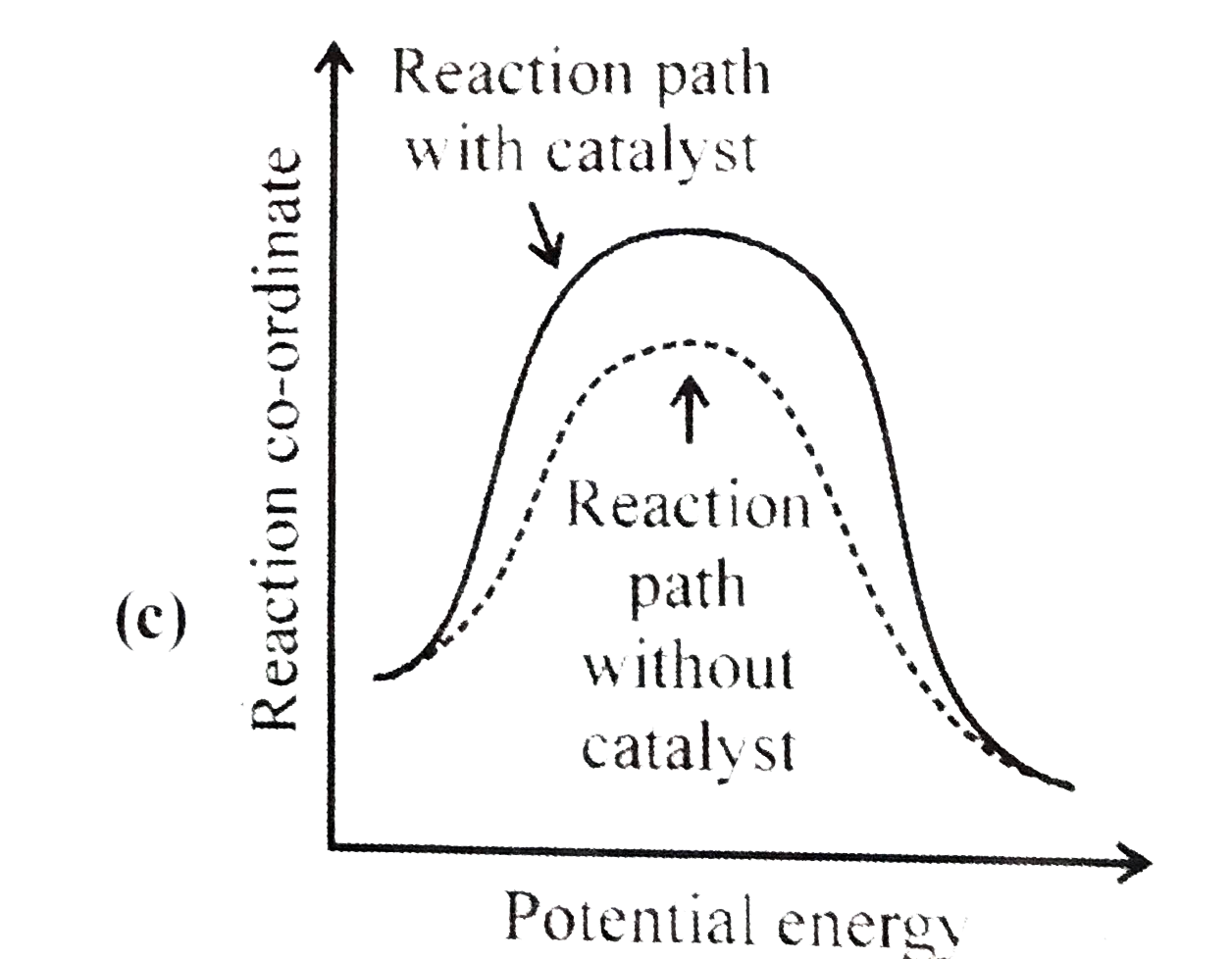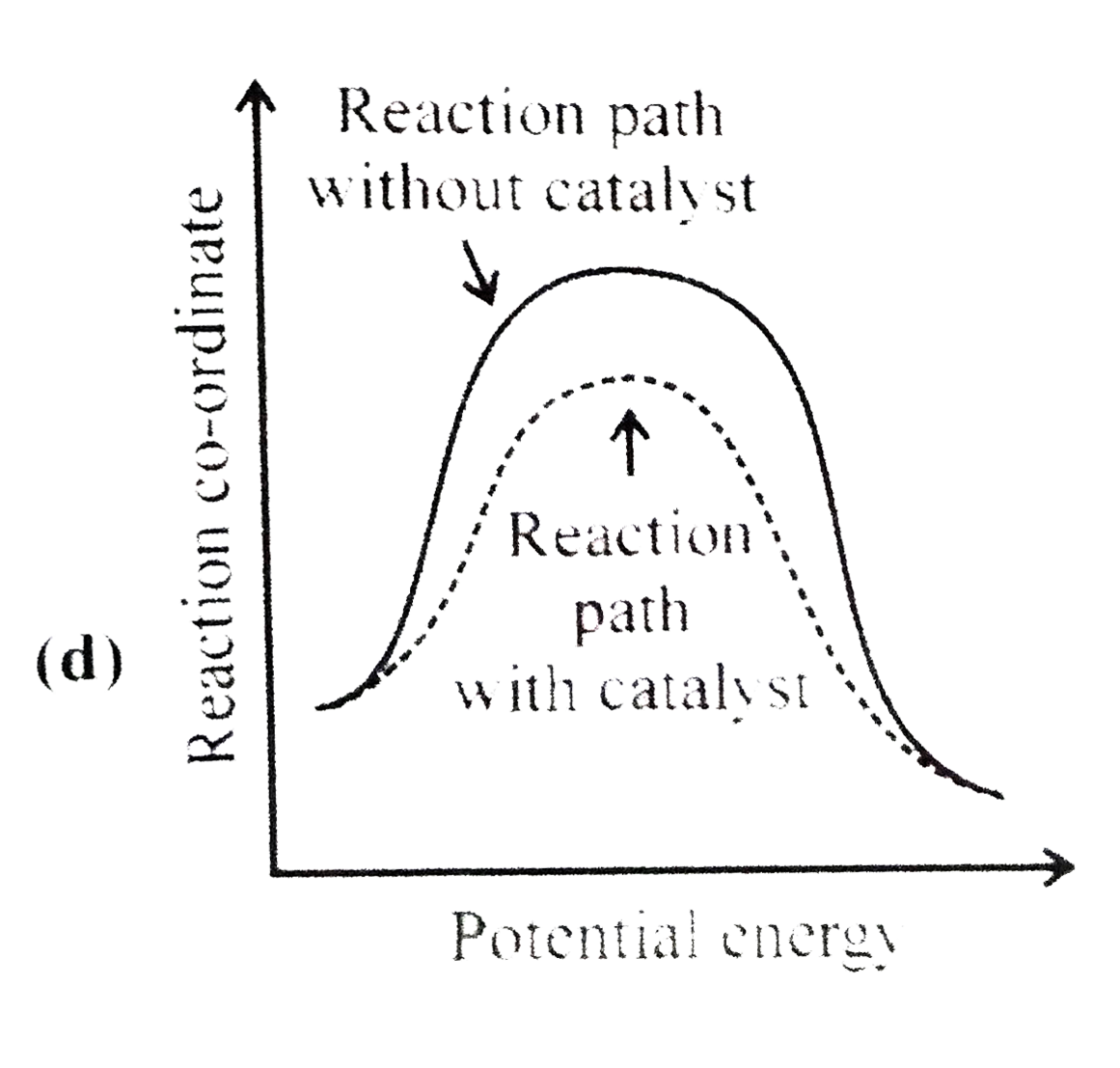Answer the following :
Effect the adding catalyst on activation energy and Gibb's energy (ΔG).
Text Solution
Catalyst lowers the activation energy and changes the path of the reaction and thus increases the rate of the reaction. A catalyst does not alter Gibb's energy of a reaction.
|
Topper's Solved these Questions
- CHEMICAL KINETICS BOOK - SURA PUBLICATIONCHAPTER - CHEMICAL KINETICS EXERCISE - ADDITIONAL QUESTIONS AND ANSWERS (SHORT ANSWER)
29 Videos
- CHEMICAL KINETICS BOOK - SURA PUBLICATIONCHAPTER - CHEMICAL KINETICS EXERCISE - ADDITIONAL QUESTIONS AND ANSWERS (LONG ANSWER)
5 Videos
- CHEMICAL KINETICS BOOK - SURA PUBLICATIONCHAPTER - CHEMICAL KINETICS EXERCISE - ADDITIONAL QUESTIONS AND ANSWERS (INCORRECT STATEMENT (s))
5 Videos
- CARBONYL COMPOUNDBOOK - SURA PUBLICATIONCHAPTER - CARBONYL COMPOUNDEXERCISE - UNIT TEST (LONG ANSWER)
1 Videos
- CHEMISTRY IN EVERYDAY LIFE BOOK - SURA PUBLICATIONCHAPTER - CHEMISTRY IN EVERYDAY LIFE EXERCISE - UNIT TEST (LONG ANSWER )
1 Videos
Similar Questions
Knowledge Check
Which of the following is correct plot for effect of catalyst on activation energy.
A B
B C
C D
D
What is the effect of adding a catalyst on
(a) activation energy Ea and (b) Gibbs energy (ΔG) of a reaction ?
View SolutionWhat is the effect of adding a catalyst on
(a) Activation energy (Ea), and
(b) Gibbs energy (ΔG) of a reaction?
View SolutionWhat is the effect of adding a catalyst on activation energy (Ea) ?
View SolutionDiscuss the effect of catalyst on the activation energy.
View SolutionWhat is the effect of adding a catalyst on Gibb's energy (ΔG) of a reaction?
View SolutionA negative catalyst ......... the activation energy.
View SolutionA negative catalyst ......... the activation energy.
View Solution
